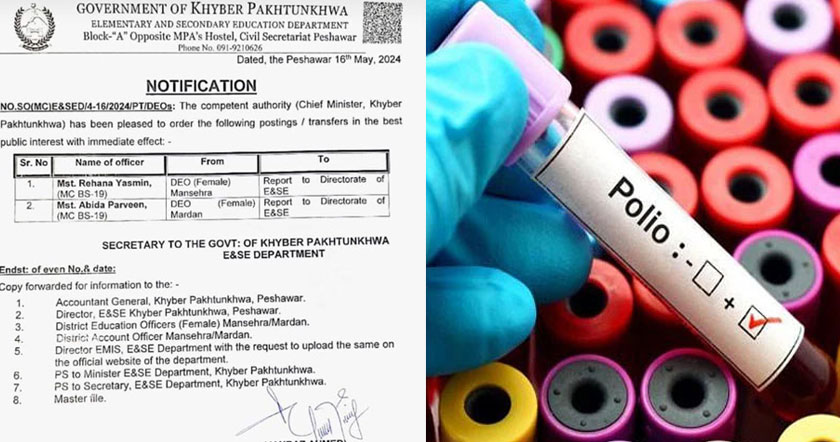Driving factors and preferred areas of spending on CSR in Pakistan

Introduction
While relying on the extant literature on CSR in Pakistan, I have summarized some key findings about the driving factors and the spending priorities of companies operating in this country. It gives a snapshot of how companies perceive CSR in Pakistan and what are their priority areas of their investment in such activities. I further critically analyzed these studies and highlighted some key omissions which may need to be addressed in future studies.
Driving Factors for CSR
The graph 1 below is adopted from the work published on the website of Triple Bottom Line which suggests that CSR is becoming the main agenda of strategic importance in Pakistan which is quite an encouraging sign. Similarly, another key finding is that CSR as a Marketing Tool and Tax rebate are not the major drivers of this notion. This finding is somewhat in line with the assertion of Farooq and his colleagues (2013) study on CSR in Pakistan whom argued that due to cultural and religious factors, people in Pakistan does philanthropic and altruistic activities as religious obligation and therefore, they perform it quietly with limited marketing about it. However, given the relatively small sample size for this study in which you have only 18 organizations from the private sector and 16 from not-for-profit sector; the generalization of these findings are problematic due to the following reasons.
First, the purpose, objectives and overall nature of the not-for-profit and for profit organizations are totally opposite to each other. Therefore, considering their missions and strategies as of similar nature is itself contradictory. Secondly, with a very small sample size from private sector i.e. 18 organizations only, whereas, as of June 30, 2012 the total number of registered companies in Pakistan were 62,343. Therefore, generalizing these findings raises a big question mark. Thirdly, the total 18 companies were from seven different industries i.e. approximately 2 organizations from one industry again may not be a true representative sample.
Likewise, another study conducted by Ayman Sajjad & Gabriel Eweje in 2014 also suggested that CSR is relatively underdeveloped notion in Pakistan and that it is generally perceived as altruistic and philanthropic activities only. They further argued that only large organizations and multinationals are adhering to the international standards of CSR as they have to comply with international standards to do business across the globe. However, this study was also based on the information extracted from the secondary sources only which by in large is quite old information. Therefore, the exact driving factors of CSR in Pakistan in 2015 are not known.

(Source: Faiz & Ambreen, 2002)
Preferred areas of CSR Spending
According to these reports under study, the most preferred areas of spending remained Education, Health, Environment and Disaster relief. These findings have been warranted by almost all the reports under study. For example, PCP report on corporate philanthropy 2010, 2011, 2012; study conducted by tbl.com; SDPI, SECP & UNDP report 2005 etc. all verify these claims. The below provided graph though from one particular study speaks for all the reports under study.

(Source: Faiz & Ambreen, 2002)
The list of top 25 public limited companies by donations is given in table 2 below. The CSR volunteer guidelines of SECP (2013) encourage businesses to spend at least 1% of their total profit on CSR activities. The table 2 provides a snapshot of where the top 25 companies are standing in terms of their donations for philanthropic activities in the light of SECP (2013) guidelines.
(Adopted from: PCP Corporate Philanthropy, 2012)
These figures have been adopted from PCP report 2012; however, percentages were calculated by the author of this report himself. The analytics suggests that overall; the top 25% companies in Pakistan are not spending the minimum benchmark of 1% of the total profit as underlined by the SECPs CSR guidelines. Additionally, some companies have spent a lot of money i.e. 11.37% on CSR whereas, other have spent as low as 0.12%. There is a huge variation in these spending which suggests that priorities of companies in Pakistan also have variations.
References:
Aymen Sajjad , Gabriel Eweje, (2014). Corporate Social Responsibility in Pakistan: Current Trends and Future Directions, in Gabriel Eweje (ed.) Corporate Social Responsibility and Sustainability: Emerging Trends in Developing Economies (Critical Studies on Corporate Responsibility, Governance and Sustainability, Volume 8) Emerald Group Publishing Limited, pp.163 187.
Farooq, O., Payaud, M., Merunka, D., & Vallete-Florence, P. (2013). The Impact of Corporate Social Responsibility on Organizational Commitment: Exploring Multiple Mediation Mechanisms, Journal of Business Ethics, DOI: 10.1007/s10551-013-1928-3.
PCP (2012), Corporate Philanthropy in Pakistan Survey of Public Listed Companies
Shah Faiz, Waheed Ambreen Triple Bottom-line Demonstration Project in South Asian CountriesPakistan, Project Report: World Summit on Sustainable Development, Johannesburg, South Africa, 2002.
http://www.csrcafe.com/2016/03/driv...red-areas-of-spending-on-CSR-in-Pakistan.html

Introduction
While relying on the extant literature on CSR in Pakistan, I have summarized some key findings about the driving factors and the spending priorities of companies operating in this country. It gives a snapshot of how companies perceive CSR in Pakistan and what are their priority areas of their investment in such activities. I further critically analyzed these studies and highlighted some key omissions which may need to be addressed in future studies.
Driving Factors for CSR
The graph 1 below is adopted from the work published on the website of Triple Bottom Line which suggests that CSR is becoming the main agenda of strategic importance in Pakistan which is quite an encouraging sign. Similarly, another key finding is that CSR as a Marketing Tool and Tax rebate are not the major drivers of this notion. This finding is somewhat in line with the assertion of Farooq and his colleagues (2013) study on CSR in Pakistan whom argued that due to cultural and religious factors, people in Pakistan does philanthropic and altruistic activities as religious obligation and therefore, they perform it quietly with limited marketing about it. However, given the relatively small sample size for this study in which you have only 18 organizations from the private sector and 16 from not-for-profit sector; the generalization of these findings are problematic due to the following reasons.
First, the purpose, objectives and overall nature of the not-for-profit and for profit organizations are totally opposite to each other. Therefore, considering their missions and strategies as of similar nature is itself contradictory. Secondly, with a very small sample size from private sector i.e. 18 organizations only, whereas, as of June 30, 2012 the total number of registered companies in Pakistan were 62,343. Therefore, generalizing these findings raises a big question mark. Thirdly, the total 18 companies were from seven different industries i.e. approximately 2 organizations from one industry again may not be a true representative sample.
Likewise, another study conducted by Ayman Sajjad & Gabriel Eweje in 2014 also suggested that CSR is relatively underdeveloped notion in Pakistan and that it is generally perceived as altruistic and philanthropic activities only. They further argued that only large organizations and multinationals are adhering to the international standards of CSR as they have to comply with international standards to do business across the globe. However, this study was also based on the information extracted from the secondary sources only which by in large is quite old information. Therefore, the exact driving factors of CSR in Pakistan in 2015 are not known.

(Source: Faiz & Ambreen, 2002)
Preferred areas of CSR Spending
According to these reports under study, the most preferred areas of spending remained Education, Health, Environment and Disaster relief. These findings have been warranted by almost all the reports under study. For example, PCP report on corporate philanthropy 2010, 2011, 2012; study conducted by tbl.com; SDPI, SECP & UNDP report 2005 etc. all verify these claims. The below provided graph though from one particular study speaks for all the reports under study.

(Source: Faiz & Ambreen, 2002)
The list of top 25 public limited companies by donations is given in table 2 below. The CSR volunteer guidelines of SECP (2013) encourage businesses to spend at least 1% of their total profit on CSR activities. The table 2 provides a snapshot of where the top 25 companies are standing in terms of their donations for philanthropic activities in the light of SECP (2013) guidelines.
| Table 2: Top 25 PLCs by donations adopted from PCP (2012) | ||||
| Rank | Company | Profit before tax | Donations (PKR Million) | Percentage |
| 1 | Pakistan Petroleum Ltd. | 64,529 | 1,100 | 1.7 |
| 2 | Habib Bank Ltd. | 34,891 | 254.9 | 0.73 |
| 3 | Fauji Fertilizer Company Ltd. | 31,021 | 220 | 0.71 |
| 4 | National Bank of Pakistan | 23,258 | 192.8 | 0.83 |
| 5 | Lucky Cement | 8,324 | 184.5 | 2.22 |
| 6 | Mari Petroleum | 1,402 | 164.4 | 11.37 |
| 7 | Pakistan Services Ltd. | 1,156 | 131 | 11.33 |
| 8 | Allied Bank Ltd. | 16,146 | 103.5 | 0.64 |
| 9 | Fauji Fertilizer Bin Qasim Ltd. | 6,469 | 95.2 | 1.47 |
| 10 | Bestway Cement Ltd. | 3,934 | 78.9 | 2.01 |
| 11 | Nestle Pakistan Ltd. | 7,978 | 73.7 | 0.92 |
| 12 | Engro Corporation Ltd. | 1,438 | 72 | 5.01 |
| 13 | J.D.W Sugar Mills Ltd. | 548 | 61.3 | 11.19 |
| 14 | Pakistan State Oil | 13,674 | 59.6 | 0.44 |
| 15 | OGDCL Pakistan | 133,083 | 50.2 | 0.04 |
| 16 | Jahangir Siddiqui & Co. Ltd. | 2,360 | 47.2 | 2 |
| 17 | Faisal Bank Ltd. | 1,840 | 44.6 | 2.42 |
| 18 | Indus Motor Company Ltd. | 6,312 | 43.1 | 0.68 |
| 19 | Pakistan Tele Communication Ltd. | 11,006 | 40.2 | 0.37 |
| 20 | Bank Alfalah Ltd. | 6,783 | 39.2 | 0.58 |
| 21 | IGI Insurance Ltd. | -414 | 38.4 | 0.928 |
| 22 | Arif Habib Corporation Ltd. | 3,994 | 37 | 0.93 |
| 23 | United Bank Ltd. | 28,410 | 35.1 | 0.12 |
| 24 | Habib Metropolitan Bank Ltd. | 5,041 | 33.4 | 0.66 |
| 25 | The Hub Power Company Ltd. | 8,580 | 32.2 | 0.38 |
| Total | 421,763 | 3,232.6 | 0.77 |
These figures have been adopted from PCP report 2012; however, percentages were calculated by the author of this report himself. The analytics suggests that overall; the top 25% companies in Pakistan are not spending the minimum benchmark of 1% of the total profit as underlined by the SECPs CSR guidelines. Additionally, some companies have spent a lot of money i.e. 11.37% on CSR whereas, other have spent as low as 0.12%. There is a huge variation in these spending which suggests that priorities of companies in Pakistan also have variations.
References:
Aymen Sajjad , Gabriel Eweje, (2014). Corporate Social Responsibility in Pakistan: Current Trends and Future Directions, in Gabriel Eweje (ed.) Corporate Social Responsibility and Sustainability: Emerging Trends in Developing Economies (Critical Studies on Corporate Responsibility, Governance and Sustainability, Volume 8) Emerald Group Publishing Limited, pp.163 187.
Farooq, O., Payaud, M., Merunka, D., & Vallete-Florence, P. (2013). The Impact of Corporate Social Responsibility on Organizational Commitment: Exploring Multiple Mediation Mechanisms, Journal of Business Ethics, DOI: 10.1007/s10551-013-1928-3.
PCP (2012), Corporate Philanthropy in Pakistan Survey of Public Listed Companies
Shah Faiz, Waheed Ambreen Triple Bottom-line Demonstration Project in South Asian CountriesPakistan, Project Report: World Summit on Sustainable Development, Johannesburg, South Africa, 2002.
http://www.csrcafe.com/2016/03/driv...red-areas-of-spending-on-CSR-in-Pakistan.html
































